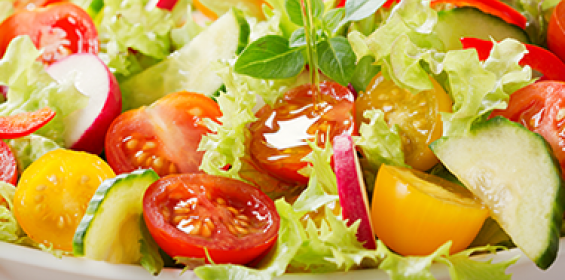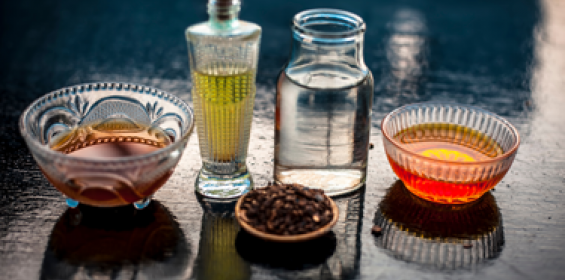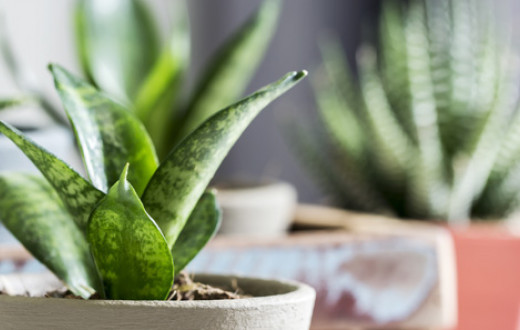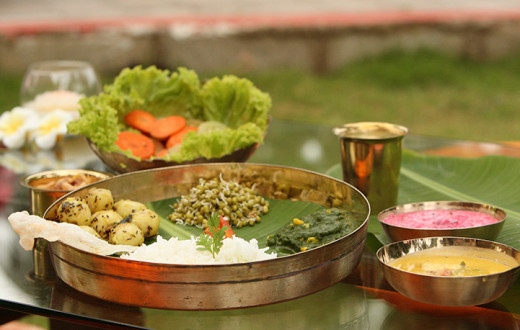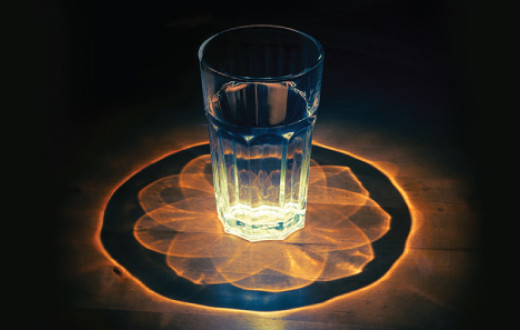Meera (18 years)
“I got stomach pain
Don’t mattersun or rain
Thought that it went away
Uh-oh, here itcome again.”
We were just song shuffling on a popular music app when Cam’Ron sang these words to me. His song, ‘I.B.S,’ might have been released in 2006, but it seems it was my reality today. My stomach has been all queasy of late, not sure why. It’s been a little stressful with our move from Nagpur to Mumbai, admission into a new college, and the first class tests. I did notice that my stomach was fine last month when my old friends popped in for a surprise visit.
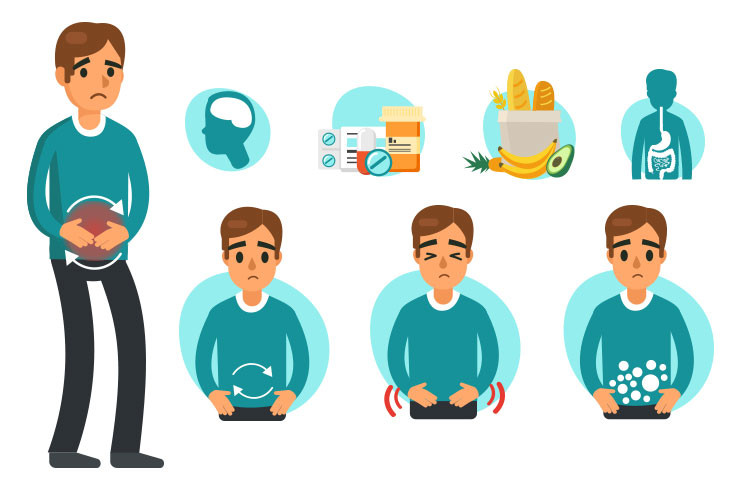
Aaji (Meera’s grandma - 75 years)
Blame it on the Mumbai water. It’s not the same as Nagpur’s. Why should I, after all these years, experience severe constipation? I’m embarrassed about it - don’t even know whom to speak to. Should I call the new allopathic doctor that we met last week? Or maybe consult my Ayurvedic vaidya back home? This uneasiness is just so irritating. Don’t even feel like stepping out to the market or for my evening walks.
GI Players: Know the team from your gastrointestinal tract
Team Hollow:
1. Mouth
2. Esophagus
3. Stomach
4. Small intestine
5. Large intestine
6. Anus
Team Solid: (Supporting players):
1. Liver
2. Gallbladder
3. Pancreas
All of these are important:
“The gut is a critical group of organs that we need to start paying more attention to. Doing so may be the secret to improving our overall wellness.”
- Steven Lamm, MD, the author of No Guts, No Glory
Sudhir (Meera’s dad - 50 years)
I seem to have lost my smile. Can’t laugh at those old jokes, like I used to. It’s a task to complete my work assignments on time. I can’t even focus on my work. Just feeling so bloated and exhausted.
Meanwhile, Anita (Meera’s mum) is wondering why the family doesn’t seem happy. Nobody seems to be enjoying the food anymore.
Worried about the family’s health, Anita started speaking to her family doctors and a nutritionist friend.
What Meera doesn’t know: There is a deep connection between our stomach and the brain. The two communicate with each other constantly. If we’re low, sometimes we get a sinking feeling in our stomach. Nervousness is sometimes described as butterflies in the stomach. And if we’re happy, then our gut knows it. It does because it is called the second brain.
Incidentally, Cam’Ron has severe Irritable Bowel Syndrome (IBS), and his song was, indeed, dedicated to his gastrointestinal problems.
 Know your fire
Know your fire
According to Ayurveda, the digestive fire or Agni digests and processes the food. When the food is digested properly, the body is in balance, and energy (ojas) is formed. However improper digestion leads to the production of toxins (ama) which, in turn, leads to all kinds of diseases.
What Aaji will soon learn: The Irritable Bowel Syndrome (IBS) can be rectified by correcting diet, lifestyle modifications, and medications. Women are twice as likely to get IBS as compared to men. Around 7 to 10 percent of the world’s population suffers from IBS - unfortunately, many people shy away from talking about it. Many individuals have gone through half a lifetime coping with IBS, even if that means skipping social engagements, saying no to job promotions, and avoid traveling.
What Sudhir will find out: Weak digestion can cause moodiness, restlessness, and loss of energy. Besides behavioral changes, gastrointestinal problems can lead to cramps, feeling bloated, and is also linked to anxiety and depression.
The family with a plan
There was silence as Anita read out the family plan that each one would have to follow. This plan was a little nutshell of the countless advice to improve digestion she was given. She was expecting a little resistance. Instead, there were secret smiles all around, which became too broad to hide. “This sounds good,” said Aaji, finally, voicing the family’s sentiment on how they would treat IBS.
Two papers were stuck on the fridge door:
Paper 1:
We are what we eat. (True)
We are also what we digest.
Paper 2:
Better digestion = better mood
= higher energy levels
= good health
Next came the detailed ‘Fool-proof plan on IBS treatment & improving digestion’ (A summary was clipped on the fridge.)
How we eat:
1. Chew slowly: Chewing slowly and up to 32 times, activates the saliva in the month. The digestion process begins in the mouth itself, making it easier for the stomach to complete its job.
You will be surprised at discovering how effective this is for IBS treatment.
2. Don’t stuff your face: Overeating pressurizes the stomach to digest quickly, produce more acid, and essentially work in an overdrive mode. This hampers digestion.
3. Avoid drinking liquids during meals: Liquids dilute the acids and rush the food down even if it’s not fully digested. So, avoid too many liquids when eating. However, sipping water during meals is a good practice. Keep drinking water and hydrating the body. Dehydration causes constipation.
4. Breathe deeply: Yes, before eating, take a deep breath in. This will relax you, and your system. This allows better digestion. Also, take a deep breath between several bites. You will be surprised.
5. Stop eating when you’re 3/4th full. That tiny space in your stomach will allow for digestion to happen smoothly.
6. Cup your hands together. Imagine the amount of food that can fit into that space. Eat just that amount. (Hint: It’s the size of your stomach!)
Needless to say, gadgets are banned on the dining table. Yes, not living inside a gadget during meal times will improve digestion and help in IBS treatment!
What we eat:
1. Many foods are good for digestion:
- Incorporate probiotics like curd in your diet.
- Fibres aid digestion. Regular bowel movement helps bid those toxins a fond adieu.
- Allow more fruits and vegetables to come your way.
- Welcome seeds, legumes, and nuts.
- Avoid refined sugars, bread, and processed foods. You might love them, but these foods do not improve digestion.
- Remove foods that you know bother your digestive system.
When the symptoms of IBS strike, prepare your forces!
How to treat IBS
Say yes to:
- Sipping hot water
- Buttermilk
- Freshly prepared warm food,
- Foods that are light for digestion.
Say no to:
- Milk
- Banana
- Spicy foods and condiments
- Avoid heavy meals & overeating.
When we eat:
Before 8 pm: This might seem tough, but will allow your body to digest the maximum amount of food before you go to bed and do 10-12 hours of fasting before the next meal. This will give your digestive system a chance to rest and digest properly and will reduce inflammation.
How we feel:
Manage stress: Whether it’s exam stress, work pressure or processing negative emotions, our brain will send distress signals to our stomach. The two talk to each other, remember? When stressed, the gut is unable to secrete all the acids it needs to digest food. The food will not get digested properly, and over time could lead to some food allergies or severe complication.
- Meditate twice a day: There is a strong connection between stress management and meditation. The better you can handle stress, the happier is your stomach. Meditation will also help to curb those food cravings and give the system some deep rest.
- Relax: It’s important to set time aside to relax and unwind. The brain and the body need to know that they’re not in a perpetual flight-or-flight response. Do any activity that rejuvenates you.
How we move
1. Exercise: Walking, running, jogging aid digestion. You can also do some yoga asanas, specifically to stimulate and soothe your digestive system. Commit to any exercise routine of your choice for at least 30 minutes a day. If it's difficult, imagine your small intestine cheering you on.
And sometimes, detox the body. Many Ayurvedic therapeutic treatments help the body get rid of toxins and strengthen the digestive system. Give these therapies a try, and gently reset your system.
A year later, Anita took the list down. Some of the habits on how to treat IBS have become such a part of their lifestyle, that they no longer needed reminders. They chose to use awareness, patience, and loving care for themselves, and are better for it. After all, healthcare and fitness can start the minute the mind decides to. The small intestine is still trying to recover from its victory dance.
Disclaimer: These are general lifestyle modifications and suggestions which would suit everyone. However, if you are sensitive to certain foods, or have persisting symptoms, it is advisable to consult a doctor.
Based on inputs by Dr. Ganesh Puttur, Vice-Principal, Professor and Head, Department of Panchakarma, Sri Sri College of Ayurvedic Science and Research





